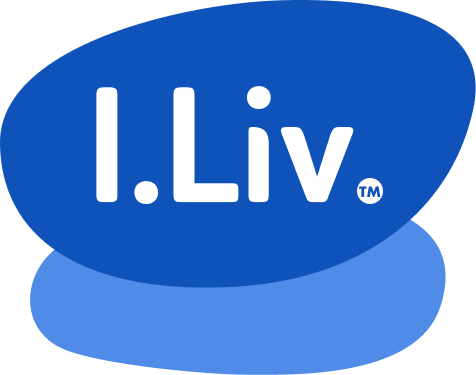The presence of women in leadership roles is more than just a metric of diversity—it’s a pivotal factor in determining a company’s competitive edge and operational success. While strides have been made in recent years to increase female representation in leadership positions, women still face significant underrepresentation in management across various industries worldwide. This discrepancy is not just a challenge to overcome but an opportunity to enhance organizational resilience and performance.
Understanding and acting on the correlation between empowering women with leadership skills and boosting company performance is crucial. Studies after studies have repeatedly shown that organizations with a higher number of women in decision-making roles often experience better financial outcomes, greater innovation, and higher employee satisfaction rates. By fostering an environment where women are equipped with the necessary leadership and growth skills, companies not only advocate for gender equity but also capitalize on a broader range of perspectives, leading to more effective problem-solving and decision-making.
At I.Liv, we recognize the intrinsic strengths and capabilities of women leaders and are committed to enhancing these qualities through targeted tools and resources. This article explores how investing in equipping women in management with essential leadership skills is not just beneficial but essential for a company’s sustained success and growth.
Investing in Women Leaders
The rationale for empowering women in leadership roles extends far beyond fulfilling diversity quotas—it’s a strategic move linked to superior organizational performance. Our understanding of this has been further validated by extensive research, including McKinsey & Company’s report “Diversity matters even more: The case for holistic impact”, which highlights a striking correlation between gender diversity in executive teams and enhanced financial outcomes. Companies in the top quartile for gender diversity on their executive teams are now 39% more likely to achieve above-average profitability compared to those in the bottom quartile. This significant increase from previous years underscores the evolving business landscape where inclusive leadership directly influences creativity, problem-solving capabilities, and financial success. By embracing a leadership structure that includes a high percentage of women, organizations not only advance gender equity but also benefit from a broader spectrum of innovative ideas and resilient decision-making processes.
Further reinforcing the benefits of gender diversity, McKinsey’s 2023 report, “Diversity Matters Even More,” highlights that companies with at least 30% female representation in their workforce are markedly more likely to surpass financial expectations. This advantage is partly due to the diverse problem-solving approaches that women bring to the table, particularly in high-pressure situations. Unlike their male counterparts who might prefer riskier strategies, women tend to explore a variety of alternative solutions, enriching decision-making processes and leading to more robust business outcomes.
Core Leadership and Growth Skills Essential for Women in Management
Effective leadership transcends gender, hinging on a core set of skills that are critical in any management role. For women aiming to ascend in their careers, mastering skills such as strategic thinking, effective communication, and decisive action is crucial. However, women leaders often bring unique strengths like empathy and inclusivity, which enrich their leadership style. Nurturing these competencies, coupled with essential growth skills such as adaptability, continuous learning, and innovation, can prepare women to tackle complex challenges and seize opportunities in today’s dynamic business environment.
Delivery of Business Outcomes: Central to Susan Colantuono’s framework of leadership acumen is the emphasis on delivering business outcomes through proficient understanding and application of three core skills: business, strategic, and financial acumen. Women in management are positioned to excel when they can clearly link their actions to positive business results. This involves understanding how their department’s outputs directly affect the company’s bottom line. It’s about mastering the company’s market position and financial drivers, applying strategic knowledge to shape outcomes that align with the broader corporate goals. This skill demands not only a thorough understanding of current market trends and the competitive landscape but also a proactive approach to anticipating and navigating future challenges. This proactive stance ensures that women leaders not only contribute to but drive the company’s long-term success and sustainability.
Effective Communication: This skill is fundamental in any leader’s toolkit. Effective communication is not just about conveying information but also about inspiring and motivating teams, negotiating with stakeholders, and presenting ideas clearly and persuasively. Women’s often higher emotional intelligence can enhance their ability to craft messages that directly link to business outcomes and resonate on a deeper level with diverse audiences.
Decisive Action: Effective leadership demands the confidence to make challenging decisions swiftly and the capability to own them fully. For women aiming to shatter the glass ceiling, exhibiting decisiveness is vital not only for their own advancement but also for earning the trust and respect of colleagues and subordinates. This ownership reflects a readiness to adapt and guide new directions as needed, reinforcing their role as agile and responsible leaders.
Empathy and Inclusivity: Research consistently shows that women often excel in empathy and inclusivity, qualities that profoundly shape their leadership style. Leaders who harness these natural tendencies create environments that prioritize understanding and respect diverse viewpoints, fostering innovation and resilience. By actively leading with empathy, women can cultivate a culture of belonging, which is instrumental in driving team cohesion and adaptability, pivotal traits for dynamic and successful organizations.
Adaptability: In today’s fast-paced world, the ability to adapt to changes and bounce back from setbacks is essential. Women leaders must cultivate resilience and flexibility, enabling them to handle the ebbs and flows of business dynamics effectively.
Continuous Learning and Innovation: The commitment to personal and professional growth through ongoing learning and embracing innovation is critical. This not only involves staying updated with industry trends and technologies but also continually seeking personal development to enhance one’s leadership qualities.
By nurturing these core skills, women in management can amplify their impact within their organizations, paving the way not only for their success but also for the advancement of their teams and the entire organization. This holistic approach to leadership is what positions women not just as managers, but as visionary leaders capable of guiding their companies through the complexities of the modern economy.

Challenges Women Face in Leadership Positions
Despite progress, women in leadership positions continue to encounter significant barriers. Gender biases, a lack of mentorship, and restricted access to strategic roles often hinder women’s career trajectories. This section explores how these systemic obstacles not only affect individual career advancement but also impact organizational health by limiting diversity at the leadership level.
Gender Bias: Even in the most progressive environments, unconscious biases can skew perceptions of women’s capabilities and leadership styles. Such biases may manifest as stereotypes, where women’s decisions are scrutinized more harshly or their leadership style is unfairly compared to traditional male norms. These biases can impede women’s access to crucial opportunities for visibility and advancement.
Lack of Mentorship: Mentorship is a cornerstone of career development, providing guidance, advocacy, and exposure to new opportunities. However, women often lack access to mentorship, especially from other successful women who can provide relevant advice and role modeling. This gap can leave women without the necessary support networks to navigate complex career landscapes and ascend to higher leadership positions.
Restricted Access to Strategic Roles: Women are frequently underrepresented in roles that are directly tied to core business operations and strategic decision-making. This underrepresentation not only stymies their career advancement but also robs organizations of diverse perspectives in critical decision-making areas, potentially diminishing business outcomes and stifling innovation. Moreover, this limitation contributes to a self-perpetuating cycle, adversely affecting the pipeline of future women leaders and perpetuating existing challenges within the leadership landscape.
Real-World Impact and Data: Studies and examples underscore the tangible impacts of these challenges. For instance, research indicates that companies with diverse executive teams not only boast higher profitability but also exhibit superior problem-solving abilities and greater innovation. Conversely, organizations that fail to address these barriers may see higher turnover rates, lower employee satisfaction, and stunted growth.
The need for targeted solutions to dismantle these barriers is clear. By developing initiatives that address gender biases, expand mentorship opportunities, and open access to strategic roles for women, organizations can enhance their overall health and drive meaningful progress towards true diversity and inclusion at the leadership level.
How Companies Can Equip Women with Leadership Skills
Organizational support is crucial for fostering a robust pipeline of female leaders. This section outlines actionable strategies that companies can implement to bolster women’s leadership development effectively, ensuring that they are not only prepared but also supported in climbing the corporate ladder.
Comprehensive Leadership Training Programs: Organizations should invest in effective leadership training programs that address the unique challenges women face. These programs should focus on developing leadership skills that address crucial business, strategic, and financial acumen that are often not adequately emphasized in leadership development programs for women. Ensuring that these programs are accessible to women at various stages of their careers can help prepare them for senior roles.
Robust Mentorship Opportunities: Establishing mentorship programs that connect women with both male and female leaders within the organization can provide them with the guidance, feedback, and support needed to advance. These programs should encourage one-on-one mentorship and peer mentoring groups, offering a platform for sharing experiences, challenges, and strategies for success.
Strong Sponsorship Initiatives: Sponsorship is often more influential than mentorship in advancing a career because sponsors actively advocate for the individual’s promotion and inclusion in strategic opportunities. Companies should encourage their senior leaders to take active sponsorship roles, ensuring that high-potential women are considered for top projects and positions.
Fostering an Inclusive Culture: Cultivating an environment that values diversity and inclusion can significantly impact women’s advancement. This involves not only creating policies that promote gender equity—such as equal pay and parental leave—but also practicing inclusive hiring and promotion practices that actively seek to balance the gender disparities at all levels of the organization.
Equitable Policies and Practices: Implementing and rigorously enforcing policies that ensure fair treatment in recruitment, retention, and advancement is fundamental. This includes regular audits of pay equity, transparent promotion criteria, and accountability measures for diversity and inclusion goals.
By integrating these strategies, companies can create a supportive ecosystem that not only prepares women for leadership roles but also enhances their ability to navigate and succeed in these positions. The benefits of such initiatives extend beyond individual success; they enrich the entire organization with diverse perspectives, drive innovation, and improve overall corporate performance.
I.Liv’s Role in Empowering Women Leaders
I.Liv is dedicated to equipping women in management with the tools and insights needed to excel in leadership roles through programs and resources, such as the I.Liv Foundation and Leadership Development Program.
I.Liv supports organizations in creating an environment where aspiring women leaders can thrive and excel. Our programs not only address the immediate needs of skill enhancement but also focus on long-term career advancement, ensuring that women are prepared to take on senior roles and make impactful contributions to their organizations. Book an exploratory call to learn more.

